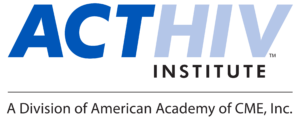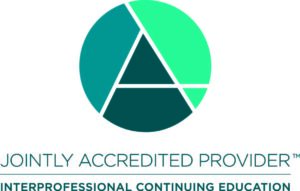Case Studies in Identifying and Addressing Intimate Partner Violence among People with HIV
|
Release Date: January 27, 2023 |
 |
Educational Need:
The prevalence of intimate partner violence (IPV) is high among people with HIV (PWH). PWH who report IPV are more likely to have poor HIV-related health outcomes (i.e., limited retention in care and poor adherence to antiretroviral therapy), sexually transmitted infections, mental health disorders, and poor overall physical health. HIV care visits are an opportunity to assess for and address IPV and provide comprehensive support to patients who have experienced IPV. Using a combination of didactic presentation and case vignettes, this free interactive CME/CNE-certified webinar will discuss the definition of IPV, its impact on HIV and non-HIV related health outcomes, guideline recommendations for assessing IPV during HIV care, and comprehensive approaches to support patients with histories of IPV using a trauma-informed approach.
Learning Objectives
- Define intimate partner violence
- Discuss the impact of intimate partner violence on HIV and non-HIV related health outcomes
- Discuss how the care team can work together to assess for and address intimate partner violence using a trauma-informed approach
Activity Faculty

Ameeta Kalokhe, MD
Associate Professor in the
Emory School of Medicine Division of Infectious Diseases
Rollins School of Public Health Department of Global Health;
Medical Director
Emory Infectious Diseases Ryan White Program

Jessica Sales, PhD, MA
Associate Professor, Behavioral Sciences and Health Education
Rollins School of Public Health
Emory University
Faculty Bios
Ameeta Kalokhe, MD is an Associate Professor in the Emory School of Medicine Division of Infectious Diseases and Rollins School of Public Health Department of Global Health, and Medical Director of the Emory Infectious Diseases Ryan White Program. Her research has focused on exploring the link between intimate partner violence and HIV health outcomes, integration of violence screening and support in HIV services, and the development of novel strategies to reach out-of-care people living with HIV.
Jessica Sales, PhD, MA, is Associate Professor and Director of Graduate Studies in the Department of Behavioral, Social, and Health Education Sciences at the Rollins School of Public Health, Emory University. She also serves as the Co-Director of the Prevention and Implementation Sciences Core of the Emory Center for AIDS Research. As a psychologist, much of Dr. Sales’ research focuses on using dissemination and implementation science to improve the adoption of patient-centered approaches to address unmet needs stemming from trauma exposure.
Accreditation and Credit Designation

In support of improving patient care, American Academy of CME, Inc. is Jointly accredited by the Accreditation Council for Continuing Medical Education (ACCME), the Accreditation Council for Pharmacy Education (ACPE), and the American Nurses Credentialing Center (ANCC), to provide continuing education for the healthcare team.
Physicians
American Academy of CME, Inc., designates this enduring material for a maximum of 1.0 AMA PRA Category 1 CreditsTM. Physicians should claim only the credit commensurate with the extent of their participation in the activity.
Nurse Practitioners and Nurses
American Academy of CME, Inc., designates this educational activity for 1.0 ANCC contact hours.(0.8 Pharmacotherapeutic Contact Hours)
California
Provider approved by the California Board of Registered Nursing, Provider Number CEP16993 for 1.0 contact hours.
Physician Assistants
American Academy of CME, Inc. has been authorized by the American Academy of PAs (AAPA) to award AAPA Category 1 CME credit for activities planned in accordance with AAPA CME Criteria. This activity is designated for 1.0 AAPA Category 1 CME credits. Approval is valid until January 16, 2027. PAs should only claim credit commensurate with the extent of their participation.
Other members of the care team will receive a certificate of participation.
Target Audience
This activity has been designed to meet the educational needs of the HIV care team, including physicians (both specialists and primary care/family medicine), nurses, nurse practitioners, physician assistants, and pharmacists who are in practice but are newer to HIV medicine or who are in training. Other healthcare providers may also participate.
Disclosures
According to the disclosure policy of the Academy, all faculty, planning committee members, editors, managers and other individuals who are in a position to control content are required to disclose any relationships with any ineligible company(ies). The existence of these relationships is not viewed as implying bias or decreasing the value of the activity. Clinical content has been reviewed for fair balance and scientific objectivity, and all of the relevant financial relationships listed for these individuals have been mitigated.
Disclosure of relevant financial relationships are as follows:
Faculty Educator/Planner
Ameeta Kalokhe, MD, and Jessica Sales, PhD, MA: no relevant financial relationships with ineligible companies to disclose.
Planning Committee
The following individuals have no relevant financial relationships with ineligible companies to disclose:
John JD Juchniewicz, MCIS, CHCP, FACEHP
Sondra Moylan, MS, RN
Edward Moylan, RP
Dianne Rausch, PhD
Theresa Senn, PhD
This activity will not review off-label or investigational information.
The opinions expressed in this accredited continuing education activity are those of the faculty, and do not represent those of the Academy or its ACTHIV Institute. This educational activity is intended as a supplement to existing knowledge, published information, and practice guidelines. Learners should appraise the information presented critically, and draw conclusions only after careful consideration of all available scientific information.
Implicit Bias
Implicit bias refers to unconscious attitudes and stereotypes that influence our thoughts, judgements, decisions, and actions without our awareness. Everyone is susceptible to implicit bias, even clinicians. In healthcare, implicit biases can have a significant impact on the quality of care an individual receives. These biases can be both favorable and unfavorable, and are activated involuntarily without an individual’s awareness or intentional control. Studies have indicated that healthcare providers’ incorrect perceptions can impact providers’ communications and clinical decision-making contributing to disparities in clinical outcomes. Addressing implicit biases in healthcare is critical to improving health outcomes and promoting health equity for all patients. Patient-centered care can reduce the impact of implicit bias, by treating each patient as a unique individual who may or may not hold beliefs associated with their backgrounds and circumstances. In addition, recognizing implicit bias in one’s own practice using techniques such as self-reflection and mindful clinical decision-making can ensure more equitable and effective care for all patients.
Over the past several decades, cognitive science research has demonstrated human behavior, beliefs and attitudes are shaped by automatic and unconscious cognitive processes. The healthcare profession is devoting greater attention to how these automatic and unconscious processes impact care including: (1) preferential treatment toward or against specific patient populations causing healthcare inequities, (2) influence patient-provider communications leading to misunderstandings and mistrust, and (3) impact access to healthcare and affect treatment decisions resulting in misdiagnosis, delays in treatment and specialty referrals and poor pain management. Considering one might have unconscious biases and exploring them may be uncomfortable because the very idea that they exist may conflict with how clinicians perceive themselves. It is only by becoming aware of one’s unconscious biases that members of the healthcare team can take steps to mitigate them to ensure all their patients are treated receive quality healthcare.
Instructions on How to Receive Credit
There are no fees to participate in the activity. Participants must review the activity information including the learning objectives and disclosure statements, as well as the content of the activity. To receive CME/CE credit for your participation, please complete the post-assessment and program evaluation. Your certificate will be available for printing immediately.
Privacy and Contact
For more information about the American Academy of CME privacy policy, please access http://www.academycme.org/privacy.htm For any questions, please contact: [email protected].
Hardware/Software Requirements
This program should be viewed at a resolution of 1024 x 768 or higher using current versions of Microsoft Internet Explorer, Firefox, Chrome or Safari. A high-speed Internet connection is recommended.
Copyright
© 2023. This accredited continuing education activity is held as copyrighted © by American Academy of CME. Through this notice, the Academy grants permission of its use for educational purposes only. These materials may not be used, in whole or in part, for any commercial purposes without prior permission in writing from the copyright owner(s).
